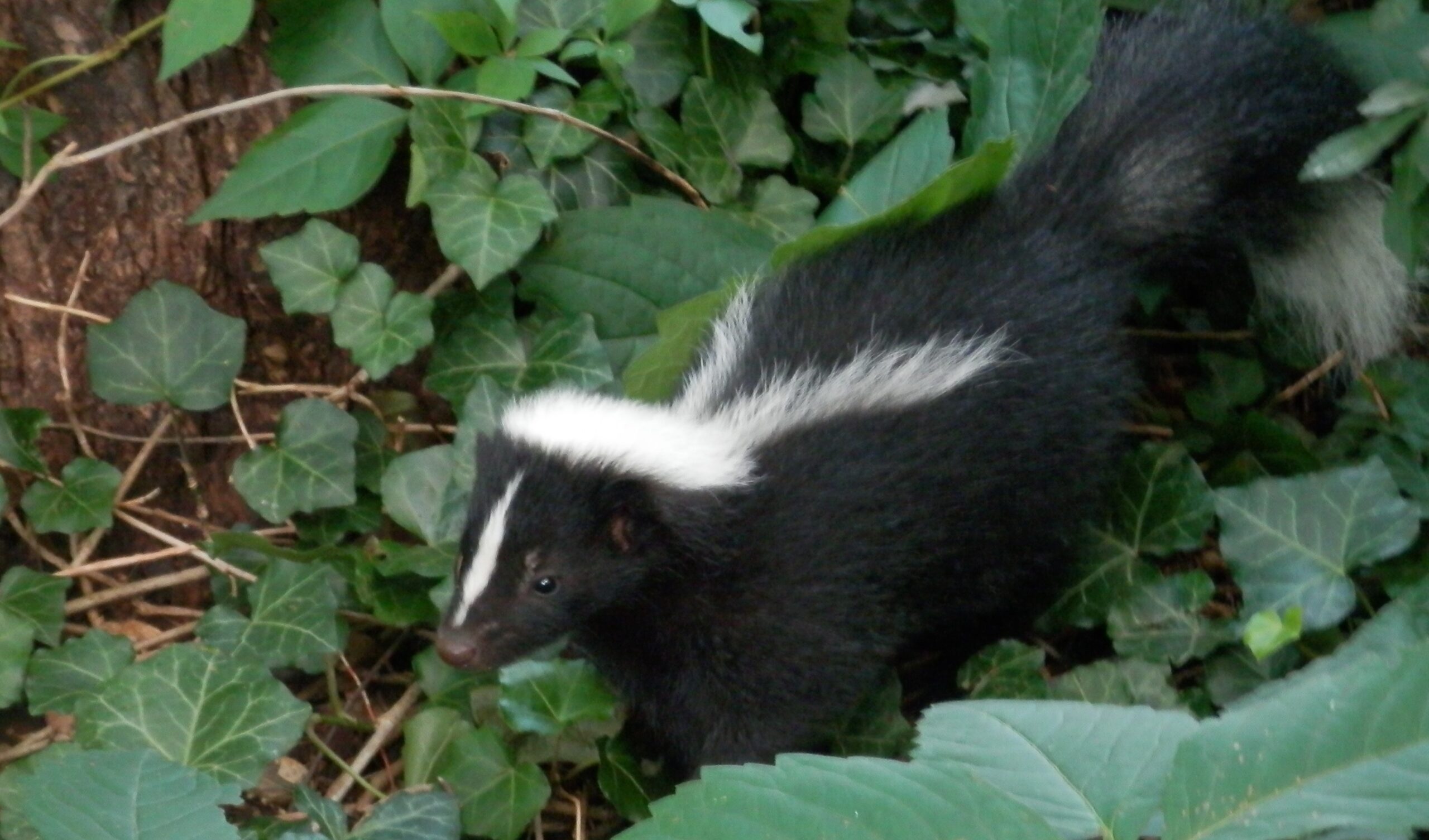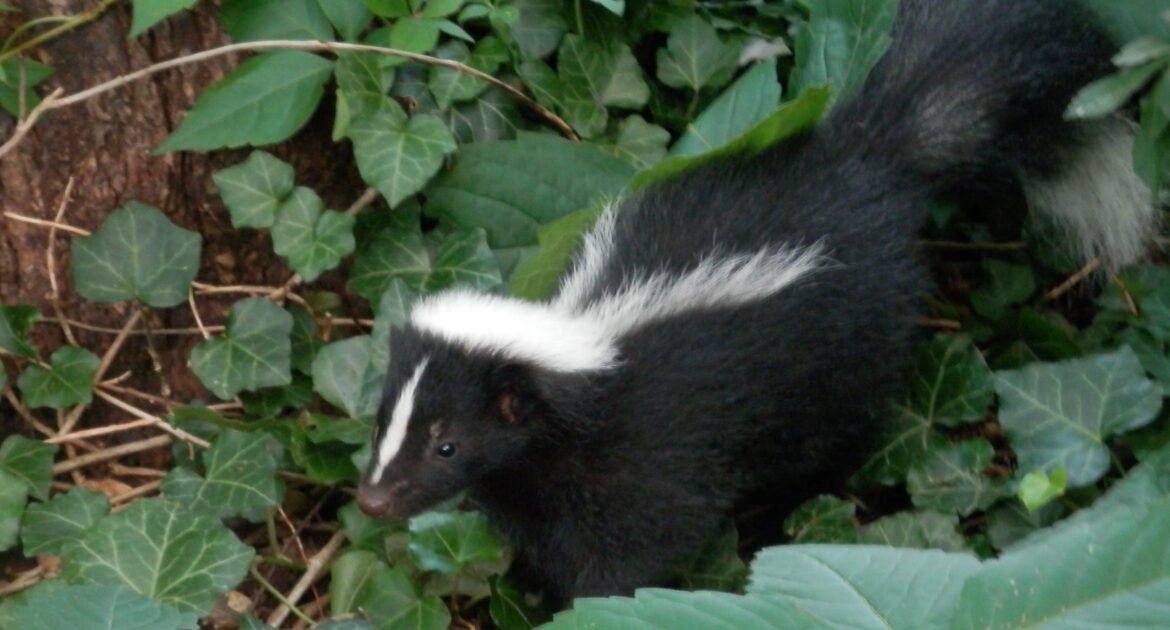Skunks are incredibly adaptable and can thrive in various environments, including urban and suburban areas like Whitehall. They often venture into yards, drawn by gardens, compost piles, or unsecured trash bins as easy sources of food. With their sharp claws and a strong sense of smell, skunks are resourceful in finding what they need, which frequently brings them into close contact with humans.
While skunks help control insect populations, their presence can lead to property damage, unpleasant odors, and unwelcome encounters. For homeowners in Whitehall, learning how to safely deter skunks is key to maintaining a secure property. Using humane and professionally guided methods can help residents manage these animals effectively while encouraging a respectful coexistence with local wildlife.
The Resilient Adaptations of Skunks
Skunks are remarkably adaptable and able to thrive in a wide range of environments. Whether in dense forests, suburban neighborhoods, or rural farmland, they adjust their behavior to make the best of available resources. Their secret lies in their ability to use human-made structures for shelter, their opportunistic diet, and their seasonal behaviors.
It’s common for skunks to make themselves at home under decks, porches, and sheds. These spaces mimic the natural burrows they’d create in the wild, while also providing better protection from predators and the elements.
Skunks are not heavy climbers, but they are incredible diggers. With strong paws and sharp claws, they excavate beneath structures to create dens that serve them year-round. During fall and winter, these dens keep them warm and secure, while in spring and summer, they function as nurseries for their young.
Their diet also plays a significant role in their adaptability. Skunks are opportunistic omnivores, meaning they’ll eat whatever is readily available. On your property, they may dig up your lawn looking for grubs, rummage through trash bins for leftovers, or feast on berries and vegetables from your garden. This versatile eating habit ensures they can thrive wherever there’s food within reach.
Interestingly, skunks don’t truly hibernate in winter. Instead, they enter a state called torpor, where they stay hidden for long periods and rely on fat reserves for energy. However, they’ll venture out during mild winter days in search of sustenance, which is why it’s critical to act promptly if you suspect skunks in your yard.
Why Do Skunks Choose Your Property?
If you’re wondering why skunks have picked your property as their new home, it’s all about comfort and resources. Human-made environments often inadvertently provide the ideal combination of food, shelter, and accessibility. Yards with loose soil, unprotected gardens, and structures with accessible under-spaces become magnets for these animals.
- Shelter opportunities: Skunks are drawn to spaces under decks, porches, or sheds, which offer safety and privacy for raising their young.
- Accessible food sources: Bird feeders, compost piles, and pet food left outdoors provide an easy meal for skunks to enjoy.
- Water availability: Features such as garden ponds, drainage ditches, or leaky outdoor faucets attract skunks seeking hydration.
- Soft soil for digging: Loose or untreated soil makes it easy for skunks to burrow and create dens.
- Seasonal activity: During spring, skunks actively seek safe locations for nesting and take advantage of lawns rich in grubs and other insects to feed on.
Skunk activity usually becomes more noticeable during the early spring when females look for safe spaces to give birth. The warmer weather also brings out grubs and insects in your lawn, providing an abundant food source. These combined factors make spring and early summer a particularly active time for skunks on residential properties.
Signs of Skunk Presence
Spotting a skunk itself might seem unlikely given their preference for nocturnal activity, but there are telltale signs of their presence. One of the most obvious is damage to your yard. Skunks are notorious for digging small, cone-shaped holes in lawns as they search for grubs and insects.
You might also notice piles of displaced dirt around the edge of a structure, an indication that a skunk has started burrowing. Tracks in soft soil or snow are another sign. Unlike many animals, their tracks are distinctive, showing five toes and visible claw marks.
Finally, their signature musk odor is a dead giveaway. While skunks generally avoid spraying unless threatened, even their natural musk can leave a lingering scent that becomes more noticeable near their den site.
Preventing and Safeguarding Against Skunks in Your Yard
Preventing skunks from taking over your property requires a strategic approach. Fencing off vulnerable areas and securing entry points under decks, sheds, and porches with heavy gauge mesh are among the most effective long-term solutions.
But there are additional steps you can take to make your property less inviting to skunks:
- Remove Food Sources: Store garbage in secured trash bins and bring pet food inside at night. If you have bird feeders, clean up spills under them regularly.
- Maintain Your Lawn: Skunks are drawn to lawns with grubs, so regular lawn care and pest control can make your yard less appealing.
- Manage Water Access: Fix leaky taps and ensure drainage isn’t pooling near your house.
At Skedaddle, we know that effective prevention goes beyond temporary fixes. We specialize in professional-grade barriers that not only block access but are also buried deep enough to withstand skunks’ digging. Our team ensures these solutions are both functional and visually seamless, leaving properties secure without compromising aesthetic appeal.
Humane Removal and Moving Forward
If you already have skunks on your property, removing them without professional assistance can lead to a number of challenges. Skunks are defensive by nature and will spray if they feel threatened. This risk is particularly high during baby season, as mother skunks are especially protective of their young.
At Skedaddle, we prioritize humane and safe removal strategies that protect both homeowners and animals. Using specially designed heated reunion boxes, we ensure that baby skunks are removed without harm while giving the mother a chance to move them to alternative dens nearby.
We also use one-way doors to allow adult skunks out without letting them back in. By addressing both the current issue and future risks, we ensure your property remains skunk-free for the long term.
Protect Your Property Today
Skunks are fascinating creatures, but they don’t belong under your porch or in your yard. Their incredible adaptability and survival skills mean they’ll keep making the best of your space unless preventative action is taken. Whether it’s securing vulnerable structures, reducing attractants, or safely removing existing skunks, staying proactive is crucial.
If you’ve spotted the signs of skunks on your property or want to safeguard your home before they settle in, we’re here to help. At Skedaddle Humane Wildlife Control, we combine decades of expertise with humane practices to ensure your property stays secure and your family stays protected. Contact us today and take the first step toward a skunk-free property!




